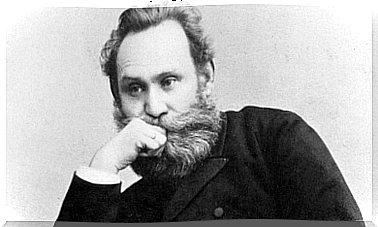Lean Philosophy: The Key To Business Management

How to manage companies is a fairly studied point, there are various theories about it. But how about using an innovative technique that can be the key to improving the productivity and competitiveness of a company or business? The Lean philosophy could provide us with great results in these aspects.
Thus, through its methodology , a new perspective is not only given to the objectives, strategies and projects. In addition, a corporate philosophy is given and efficiency and productivity are improved for the future.
To find out about the Lean philosophy, continue reading this post. Through it we will tell you what it is about, what were its origins, what are its principles and the benefits that you could count on when incorporating it into your company or business.
What is the Lean philosophy about?
The Lean philosophy is a project management methodology that provides tools to adopt a new comprehensive approach. In addition, it consists of innovating processes and improving the management of operations to generate both value and benefits.
This philosophy has become key to ensuring business survival, hence its popularity. It does this to achieve quality, speed, and alignment with customer expectations. In other words, the lean philosophy seeks to eliminate everything that does not generate value, in order to focus on what is fundamental in the present moment.

Origins of the Lean philosophy
Although the Lean philosophy continues to boom, it has a long history. To talk about it, we must emphasize the Toyota car brand. You may wonder, why? Because this philosophy germinated thanks to the Toyota Production System (TPS).
Now it all started with Sakichi Toyoda, who created the automatic loom. And, for this, he not only automated the work that was previously carried out manually, but also managed to allow the machine to make its own judgments, and thus eliminate defective products. In this way, he managed to improve both productivity and efficiency at work.
Later, Kiichiro Toyoda, inherited this philosophy. In addition, he proposed that the ideal conditions to do things are when machines, facilities and people work together adding value, without generating waste. Then, he focused on techniques to eliminate waste, and promoted among other things automation with a human touch. Eiji Toyoda optimized this system, managing to increase worker productivity.
Then with strong backing from Eiji Toyoda, Taiichi Ohno helped establish Toyota’s production system and developed the foundation for Toyota’s making thinks, creating the framework of the Just in time method .
This system became a world-renowned method. And, the company continues to make improvements in order to guarantee its evolution. It is recently known as the “Toyota Way” and has been adopted by different types of companies, not just the automotive type.
How did the name come to be?
Thanks to Daniel T. Jones, Daniel Roos, and James P. Wocmack we have their names. They wrote a book called “The machine that changed the world: the story of Lean Production.” So it is to them that we owe the name as we know it today.
If we take a tour of his book, we can see that he tells and exposes examples of the Toyota company’s production system. Today it provides a guide for managers and industry leaders seeking to transform traditional companies into successful examples based on the Lean philosophy.
Lean philosophy principles
The Lean philosophy has various principles that will make your company stand out: effectiveness, quality and productivity, among other aspects. We show you the most important principles, pay attention:
- Continuous improvement Each step represents progress. And, after each process, you have to ask yourself, what can be optimized? How to do it? What has failed? What is essential and what is not?
- Detection and solution of problems. It consists of being attentive to what happens to find errors and problems. So, solving what is found from the beginning will help to be more productive. In addition, to satisfy the needs of the client for its high quality.
- Optimize the system. It’s about improving possible outcomes by emphasizing management, planning, processes, travel, overproduction, quality, and defects.
- Eliminate what is not “added value”. If something is not contributing to the company, you have to get out of it. That is, it is not generating benefits, so it is not useful.
- Ensure quality. All projects must be oriented towards it. Working in this way guarantees a competitive advantage due to the capacity of the demand.
- Value chains. The project is divided into different chained phases, and with the option of introducing changes. The goal is for the product to evolve throughout the stages.
- Zero predictions! It promotes a system of stages in which the company must respond to what the customer truly demands. This is made possible by value chains.
It is also useful to apply the 5s strategy developed by Toyota, to achieve lasting improvements. See what each S is about:
- Seiri. It is about subordinating, classifying and discarding.
- Seiton. It consists of systematizing, and ordering.
- Seiso. Focus on sanitizing.
- Seiketsu. Emphasize simplifying, standardizing, and making it consistent.
- Shitsuke. Sustain the process through discipline.
All of these principles will help you to achieve business success. In addition, you could also follow Ohno’s advice, which for something has endured throughout history. Ohno focused on attacking waste, if you see any of these in your company, you know where to start:
- Useless stages in the processes.
- Any repeat work.
- Movement of people that does not create value.
- Produced goods for which there is no demand.
- Inventory movement that does not create value.
Also, keep in mind that when workers are putting in the same amount of effort, something is wrong. Therefore, it is important to have full attention in all aspects of your company, that is the fundamental thread so that everything becomes optimal.

Benefits of implementing the Lean philosophy in your company or business
By implementing the Lean philosophy in your company or business you are going to obtain great profits, and we are not talking only about the economic ones. To do this, you will realize that you have to work hard, and it is not as easy as it sounds, because it requires big changes. But, with effort and dedication you can achieve it.
Now, look at the benefits of applying this philosophy:
- The employee acquires a sense of belonging.
- Motivated employees.
- The useful life of the equipment is increased.
- Higher quality products are generated.
- Time optimization.
- Goodbye to wasted time and useless meetings!
- Increase the value of the company.
- Customers increase.
- The system is optimized.
- Business survival.
- Problem solving, through continuous improvement and learning.
- Improves the work environment.
- Economic growth.
- Stability of the members of the organization.
- Excess production that could lead to losses is avoided.
- Growth of leaders, who can teach others the philosophy.
- Formation of teams that follow the business philosophy.
The Lean philosophy generates long-term projects, in which learning is promoted, and the use of better ways to stop making mistakes that lead to losses. Then, the experience could be built from wrong decisions, that is the learning.
Now, this philosophy has been used by various companies. We can find several articles that talk about it in the Journal of Lean System. For example, García, Santos DA Silva and Antonowicz present an article published in 2019, Lean tools applied in urban public transport. After their study, they affirm that the lean philosophy brings improvements because it eliminates errors and waste, which generates an increase in value, both for the company and for customers.
So, through Lean psychology we can achieve optimal business management. This means getting to know our company, the processes, the employees and the machinery in depth in order to improve what is not going well and achieve great results.
It is wonderful how Toyota grew into a large and successful company. Of course, his philosophy has been the engine for this, and the continuous improvement that he carries by flag. Follow their example and overcome obstacles always looking for system optimization. The Lean philosophy will be the driving force behind your company, go ahead!









